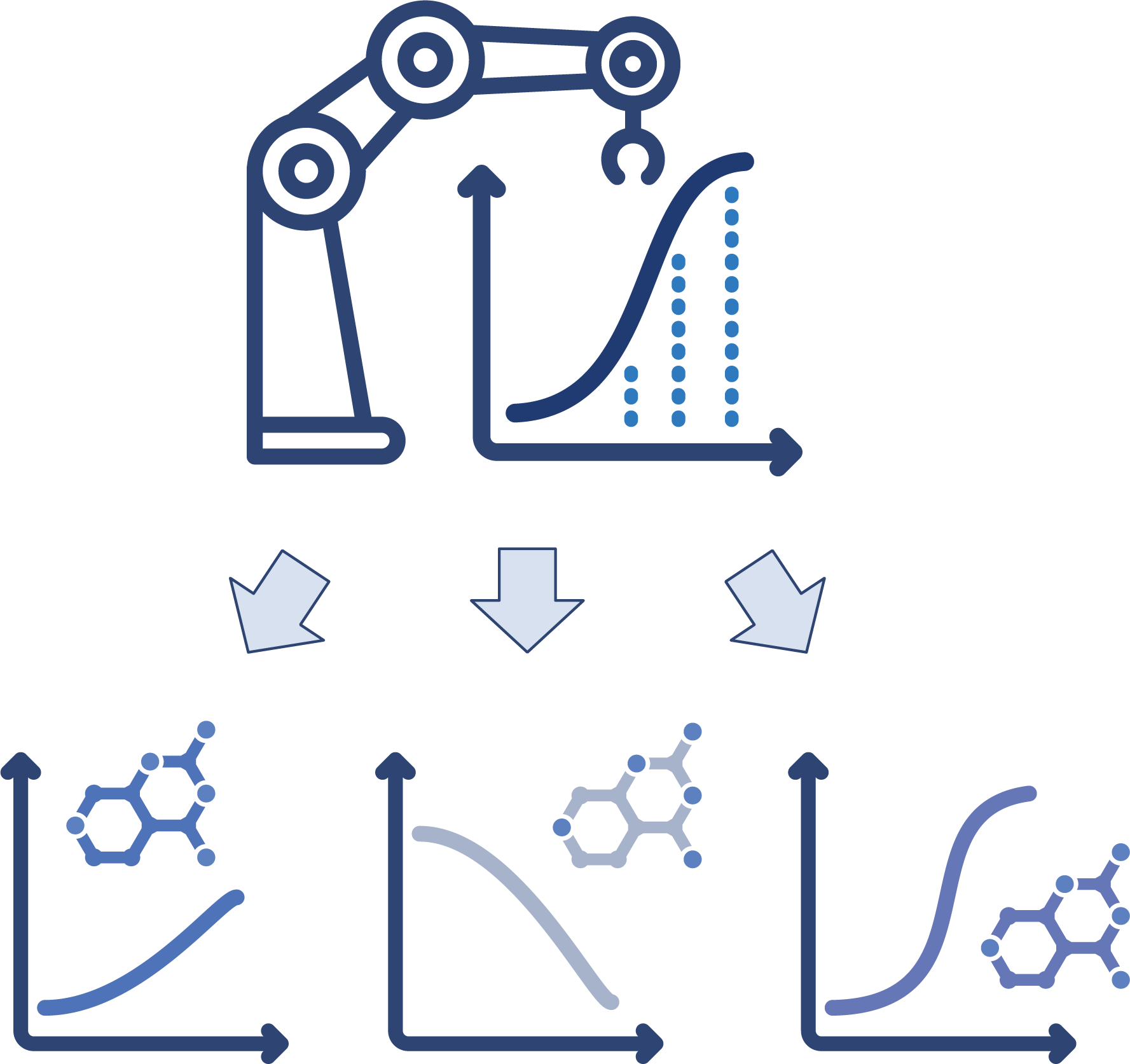
Automated high-throughput Adaptive Laboratory Evolution (ALE) experimentation
Our research employs adaptive laboratory evolution (ALE) for optimizing microbial strains. Addressing the limitations of traditional strain design, ALE fosters the evolution of strains in a controlled setting, enhancing traits, boosting yields, and revealing new metabolic pathways. Our work has applications in industrial biotechnology, promoting efficient and sustainable processes, and in medicine, where we develop strains for therapy and diagnostics. We combine computational and systems biology with advanced genetic engineering to redefine the limits of microbial engineering.

